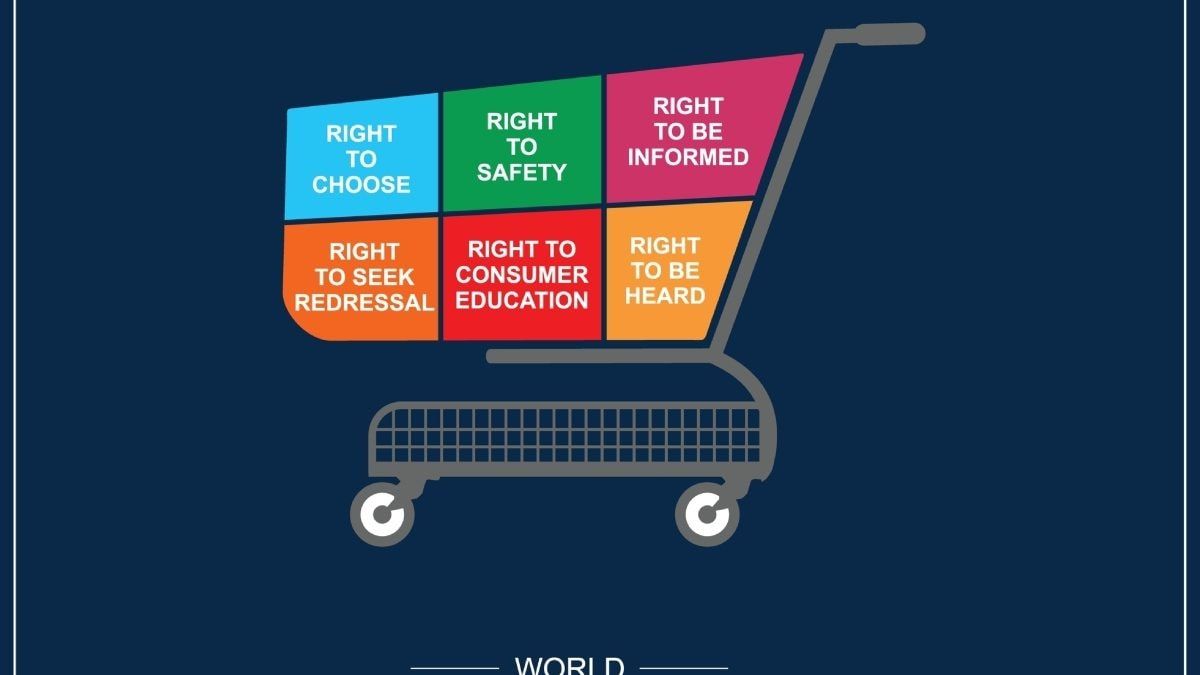published by: Nibandh Vinod
Last update: March 15, 2024, 06:10 IST
World Consumer Rights Day was first celebrated on March 15, 1983. (Image: Shutterstock)
World Consumer Rights Day originated after former United States President John F. Kennedy on March 15, 1962, addressed consumer rights before the United States Congress.
World Consumer Rights Day is celebrated annually on March 15 around the world. As the name suggests, this day serves as a reminder of proper information on the quantity, quality, purity, potency, price and standard of the product, including the importance of protecting consumer rights. World Consumer Rights Day empowers consumers by raising awareness about their rights and responsibilities in the marketplace. It also highlights the need for fair and ethical business practices, holding companies accountable for upholding consumer rights.
Theme of World Consumer Rights Day 2024
This year, the theme selected by Consumers International for World Consumer Rights Day 2024 is “Fair and responsible AI for consumers.” This topic highlights the growing importance of Artificial Intelligence (AI) at breakneck speed and the need to act quickly to ensure a fair and responsible AI future when it comes to consumer rights.
World Consumer Rights Day therefore aims to highlight concerns such as privacy violations, misinformation and discriminatory practices, as well as how AI-powered platforms can spread false information and prolong bias.
World Consumer Rights Day 2024: History
The seeds of World Consumer Rights Day were planted by former United States President John F. Kennedy on March 15, 1962, while addressing consumer rights before the United States Congress. This was the first time a world leader spoke about consumer rights. This day was first celebrated on March 15, 1983, and since then, the United Nations has recognized and endorsed World Consumer Rights Day on a global scale. To raise awareness about consumer rights, several events have been organized nationally and internationally.
World Consumer Rights Day 2024: Importance
This day is celebrated to raise awareness about the existing rights of consumers, which can protect them from being victims of unfair practices, discrimination and exploitation. World Consumer Rights Day also encourages people to know more about how to protect their rights and ensure they can take steps to redress grievances.
World Consumer Rights Day 2024: Basic consumer rights
Consumers have certain legal rights for grievance redress if they are dissatisfied with their purchase or have been deceived by a counterfeit item. These rights help compensate aggrieved consumers and prevent unfair business practices. Check here 6 basic consumer rights.
- Right to securityThis right ensures that consumers are protected from dangerous products available on the market to safeguard their long-term interests. Manufacturers and sellers are required to comply with safety rules and regulations. Quality brands of products in India are Indian Standards Institution (ISI) brand, AGMARK, FPO, etc.
- Right to be informedThe consumer can insist on receiving clear and precise information about the products and services they purchase. This includes details such as price, quantity, quality, potency, purity, manufacturing/expiration dates, and any potential risks or side effects of the product to protect against bad business practices.
- Right to chooseIt is the right of the consumer to freely choose between a variety of products and services offered in the market at fair prices.
- Right to be heardConsumers have the right to express concerns and complaints about products or services with which they are dissatisfied. They may lodge complaints with the relevant authorities and, with due consideration, will be provided with the appropriate forum to do so.
- Right to seek redressIf a consumer's rights are violated, he or she has the right to request compensation or an appropriate settlement.
- Right to consumer educationIt is the client's duty to know their legal rights. Therefore, the right to consumer education involves acquiring relevant skills and knowledge. This allows consumers to make informed decisions and protect themselves from unfair practices.












